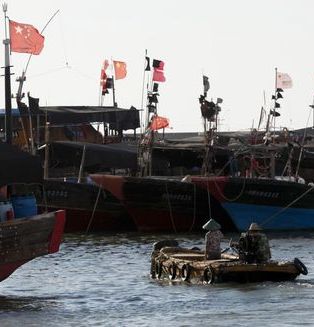Satellites and seafood: China keeps fisherman connected in disputed waters
On China’s southern Hainan island, a fishing boat captain has one high-tech piece of equipment on his aging vessel: a satellite navigation system that gives him a direct link to the Chinese coastguard should he run into bad weather or a Philippine or Vietnamese patrol ship when he’s fishing in the disputed South China Sea. By the end of last year, China’s homegrown Beidou satellite system had been installed on more than 50,000 Chinese fishing boats, according to official media. Boat captains have paid no more than 10 per cent of the cost of this technology. The government has paid the rest. Hainan authorities encourage fishermen to sail to disputed areas. Government fuel subsidies make the trips possible.
It’s pretty clear that the Chinese fishing fleet is being encouraged to fish in disputed waters. I think that’s now become policy as distinct from an opportunistic thing, and that the government is encouraging its fishing fleet to do this for geopolitical as well as economic and commercial reasons.
Alan Dupont, a professor of international security at the University of New South Wales in Australia
It’s a sign of China’s growing financial support for its fishermen and it has put Chinese fishing boats – from privately owned craft to commercial trawlers belonging to publicly listed companies – on the frontlines of one of Asia’s flashpoints. Most recently, they were a fixture around a Chinese oil rig positioned in disputed waters off Vietnam, where they jostled and collided with Vietnamese fishing boats for more than two months until China withdrew the drilling platform in mid-July. China claims 90 per cent of the strategic South China Sea. Vietnam, the Philippines, Malaysia, Brunei and Taiwan also claim parts of the ocean, which is potentially rich in oil and gas but also home to vital fishing grounds for the region.

Asia-Pacific south china sea